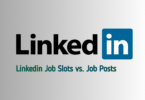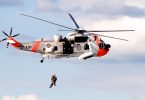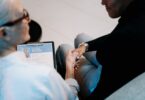What to wear to an interview men -When you finally get to that interview, you may not know the company’s dress code before your arrival.
While interviews for startups or for non-professional jobs indicate a casual appearance, if you are interviewing for a professional position, it is important to stick to a formal appearance.
Should a man always wear a suit to an interview?
Of course, even within the “business formal” category, there are a whole lot of different dress codes. A formal look is like this professional one but doesn’t look ‘claustrophobic’ or nervous, making it a good choice for all types of interviews. This guy’s gray suit, with a colorful button and jacket underneath, gives him a modern and elegant look but a still workplace fit.
A job interview offers the opportunity for you to market yourself by making your skills and experience stand out from the rest of the applicants. Steps to preparing for a job interview can consist of asking questions to ask the hiring manager, printing resumes and reference lists, and doing additional research.
However, taking the time to dress appropriately for an interview can make you more comfortable and confident when answering questions while meeting the employer’s clothing requirements.
When you get to the job interview, the first few minutes are actually some of the most important minutes. Although we’ve all learned not to judge a book by its cover, the opposite is usually true. When you meet your interlocutor, the first few seconds of time they spend together will build her first impression of you.
Read Also: List of What to Wear to a Job Interview at Starbucks
Can you overdress for an interview?
If you enter the room in inappropriate clothing, the initial bad impression can be difficult to overcome, even after entering the interview. Of course, the rest of the interview will be important as they look for more information about your experience, skills, work ethic, and more, but starting things on the right foot with the right professional attire is a surefire way to make an excellent first impression.
Choosing the right outfit for a job interview can be a challenge. (That is, and knowing which questions you have to be prepared to answer, of course.) After all, if you want to be ready to do your best, you’ll want to look your best too.
But what if you had no idea what to wear?
Not every job interview requires you to wear a specially fitting tie and a pair of polished shoes. In fact, doing so might reveal that you haven’t done your research. So before you dust that suit, know that your attire will be highly dependent on the company culture and the type of work you will perform there.
What to wear to an interview men
· Suits
The key to formal interview attire is dress modestly. A suit is a must for a formal interview so choose your suit carefully! The best two colors for a matching suit are either navy blue or gray. A black suit is also appropriate, but it is not my favorite color as it can be a bit intense in an interview.
A modern suit jacket has two buttons, not three, so make sure yours only has two! While standing and wandering, keep pressing the upper button and the lower button unpressed. When you sit down for the interview, loosen the buttons.
· Classic shirt
When dressing for an interview, there are only three colorful shirts you should wear under a suit jacket: light blue, beige, or white. While colors like red, green, pink, yellow, orange, and purple look great with a suit, they can be a distraction in an interview. Solid colored shirts are perfect for interviews. If you must wear a print, choose a very subtle one.
· Complementary tie
Wear a silk tie that complements the colors of your suit and shirt. Patterned ties are as welcome in the interview setting as they are for multi-colored ties – just make sure the tie pattern isn’t too flashy and the colors aren’t too bright. The current tie is relatively thin so make sure you tie yours too!
· Coordinated shoes and belt
Make sure the color of the shoe matches the shoe. Leather is the perfect material for these items. If your suit is gray or black, wear black shoes and a matching black belt. If your suit is blue, wear brown shoes and a matching brown belt.
· Thin socks
It’s normal for a well-fitting suit to expose your ankles when sitting, so it’s important to choose a suitable pair of socks. Wear pantyhose a solid color in the same color as your pants.
· Other accessories
Keep extra accessories to a minimum. At most, wear a watch that matches your belt and possibly a tie strap. Again, keep it simple. Ultimately, interviews are a good time to show employers why you want to work for their company. While you want to look cute to meet you, you don’t want your clothes to be distracting. Make upscale choices so your confident personality doesn’t struggle to stand out alongside your vibrant outfit!
What color suit is suitable for an interview?
The most neutral colors and therefore the most suitable for a job interview and any other formal occasion are navy blue and charcoal. If you want to wear black, it is recommended that the fabric you choose have some patterns, for example stripes.
Waiters usually wear a solid black suit (unless it is a tuxedo suit) and thus it is the lilac tone to business suits for any occasion including a job interview. If you do decide to use fabric colors other than these, make sure you understand that your stand-out clothing will draw excessive attention.
Things men should not wear to an interview
· Unusual color suits
Gone are the days when men 100 percent have to be interviewed in a blue or gray suit with a blue or white shirt, conservative tie, and black or brown leather shoes. In the past decade, many companies have adopted a dress code that is formal or informal for work, and this new law extends to interviews. This doesn’t mean that a suit is a bad choice when interviewing a casual company, but there can be instances when you dress excessively, just as it has happened in the past when it was possible to dress in casual clothes. So, you should always do some espionage before your interview to try to figure out what is appropriate and what is not appropriate in the company you are interviewing for.
· Bow Ties
There are some people (men and women) who do not tolerate that much when it comes to tie and men’s ties. You never know with whom to interview. This means that you never know what someone might think about an atypical piece of clothing, such as a tie. So it is best to make it non-extreme and unusual during your first impression (your interview). If you’re a “tie guy,” save the tie for the third week of your new job. Meanwhile, if you must wear a tie during the interview, make sure it’s one that can be Half Windsor-ed.
· Open toe shoes
I believe open shoes should never be worn in an interview. If you must go to an open toe (if outside is 100+), wear your Birkenstocks during your commute, then peel them two or three blocks away from the office building you’re interviewing with and replace them with socks and wing edges. Once your interview is over, and you are a few blocks away from the aforementioned office, straighten again and release your feet.
· Sports shoes
Although I admit that the sneakers and the suit are a look I like, I don’t think there will be anything that would wear a pair of sneakers enough to make them fit enough for an interview. Even if they are close cousins of a shoe or boot (for example, a burgundy color and suede leather), they are likely not the opposite of a tie and attract unwanted attention.
In as much as sneakers are the preferred footwear choice for some of the most prominent CEOs these days, and companies going the casual route allow sneakers to be worn pretty much all the time. However, during the interview, they send the message that you may not be serious enough (to take a job). Also, if you are concerned about comfort and support, there are plenty of suitable interview shoes that are as comfortable as sneakers. For example, I once played a full football match and had no issues with passing, shooting, dribbling and handling (if not scoring and winning).
· Light blue jeans
When it comes to jeans, color matters. That is to say, I think there is a time and place to wear black jeans, dark gray jeans, and even dark blue jeans for an interview. For example, if you are interviewing for a tech startup with a more casual vibe, you might be wearing dark jeans, a jacket, a collar shirt, and sneakers (again, do your research and make sure this is okay; don’t just take my word for it). However, there are no instances when you are interviewing for an office / professional job where light blue jeans are the way to go. It’s just very informal and implies aesthetic relaxation. And it is not something you want to go for. Relaxation may be fine on the first appointment, but it won’t work for the first (or second or third) interview.
· Graphic shirts
Like jeans, shirts are not out of the box right now when it comes to interviewing clothing. A suit-dressed shirt can be somewhat formal, although only a few men in some particular profession will be able to do well in an interview (I think of top creative positions in the creative fields, in particular). However, wearing the words, whether across your chest or elsewhere, is very informal, takes attention away from the words you speak, and may contain a message that the interviewer does not like. Thus, keep your shirt, if you must wear it, free of letters, words and phrases. This also applies to brand names, designer names, and brands. Do not wear them.
· Hats
Baseball caps, top hats, fedoras, hats, beanies, boaters, flat caps, fisherman hats, peak hats, and bucket hats. Whatever hat obsession you have, leave your hat outside the room you’re interviewing for (or deep in the bag you bring to your interview). Of course, this does not include hats that are worn for religious purposes; Those are definitely okay. The point here is that unnecessary hats are, well, unnecessary, and there is a good chance that if you wear one to an interview, you will be forever known, during the internal discussion of your job nomination, as the “man with the hat” and not by your actual name. It is, at the very least, “not a good thing.”
· Jewelry
There really isn’t a good reason (I can’t think of it) to wear necklaces, bracelets, or rings (except for wedding bands), piercings, or any other types of jewelry adorning your body for an interview. Jewelry, like some of the items listed above, will draw attention to itself, thus drawing attention away from your candidacy. Jewelry is something you can definitely sport once you get down to business (if that seems appropriate and it’s a part of your everyday clothing) but it’s not something you can sport in an interview. I’m also thinking of luxury watches here. Place your gold Rolex watch in your top tray, not on your wrist, while you are interviewing.
EDITOR’S RECOMMENDATION:
12 Best Free secretary apps to aid Effectiveness
How long should a resume be? Best Guide
What is a Short Term Disability and how long is short term disability
We hope you really found this article on What to Wear To An Interview Men helpful. Let us know what you think at the comment box. Share to help someone get a job or make an informed decision about their career today.






